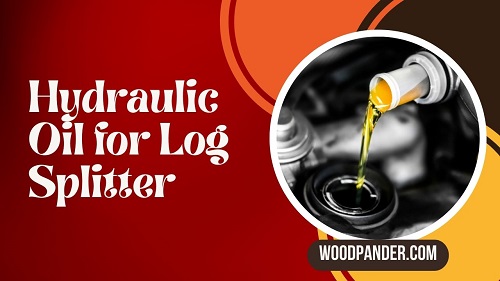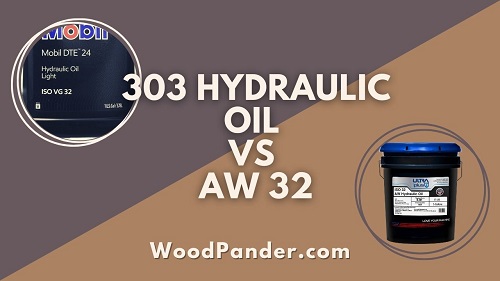When it comes to maintaining and operating hydraulic equipment, such as hydraulic jacks, it’s crucial to understand the importance of using the right fluids.
Brake fluid is a commonly available hydraulic fluid used in vehicles, but can it be used in hydraulic jacks as well?
However, there is a common question among users: Can You Use Brake Fluid in Hydraulic Jack?
In this article, we will explore the compatibility of brake fluid with hydraulic jacks, potential risks involved, and alternative options.
Can You Use Brake Fluid in Hydraulic Jack
| Feature | DOT 3 Brake Fluid | DOT 4 Brake Fluid | DOT 5 Brake Fluid |
|---|---|---|---|
| Composition | Glycol-based | Glycol-based | Silicone-based |
| Boiling Point (Dry) | 205°C (401°F) | 230°C (446°F) | 260°C (500°F) |
| Boiling Point (Wet) | 140°C (284°F) | 155°C (311°F) | 180°C (356°F) |
| Compatibility | Compatible with DOT 4 and DOT 5.1 fluids | Compatible with DOT 3 and DOT 5.1 fluids | Not compatible with DOT 3, DOT 4, or DOT 5.1 fluids |
| Hygroscopicity | Absorbs moisture | Absorbs moisture | Does not absorb moisture |
| Corrosion Protection | Moderate | Moderate to good | Good |
| Recommended Change Interval | Every 2 years or as specified by vehicle manufacturer | Every 2 years or as specified by vehicle manufacturer | Every 5 years or as specified by vehicle manufacturer |
| Cost | Relatively affordable | Slightly more expensive than DOT 3 fluid | More expensive than DOT 3 and DOT 4 fluids |
| Application | Commonly used in older vehicles and some motorcycles | Commonly used in modern vehicles | Commonly used in high-performance vehicles, classic cars, and motorcycles |
One of our articles –Can you Use Power Steering Fluid For Hydraulic Jack?
Brake fluid is a specially formulated hydraulic fluid that is primarily used in automotive brake systems. Its main purpose is to transfer force from the brake pedal to the brake components, enabling efficient braking.
Brake fluid needs to have specific characteristics such as high boiling point, low compressibility, and corrosion resistance to ensure optimal brake system performance.
Brake fluid is typically composed of glycol-ether or silicone-based compounds, which provide the necessary properties for its application in brake systems.
There are several types of brake fluid available, including DOT 3, DOT 4, DOT 5, and DOT 5.1, each with different specifications and performance characteristics.
Hydraulic Jacks
| Feature | Bottle Jack | Floor Jack | Scissor Jack |
|---|---|---|---|
| Design | Compact | Larger, horizontal | Compact, vertical |
| Lifting Capacity | Typically up to 20 tons | Typically up to 3 tons | Typically up to 2 tons |
| Height Range | Limited | Moderate to high range | Limited |
| Stability | Good stability | Very stable | Moderate stability |
| Portability | Portable | Less portable | Highly portable |
| Ease of Use | Requires manual effort | Easier to operate | Easier to operate |
| Application | Ideal for heavy-duty vehicles | Suitable for cars, SUVs, and light trucks | Suitable for small to mid-sized vehicles |
| Safety Features | Overload protection, safety valves | Safety release valve, swivel saddle | Safety lock mechanism, handle for easy use |
| Price Range | Affordable | Moderately priced | Affordable |
One of our articles –Can you Use 2-Stroke Oil For Chainsaw Bar Oil?
Hydraulic jacks are widely used for lifting heavy loads, whether it’s for automotive repairs, construction, or other industrial applications. These jacks utilize hydraulic pressure to lift and support heavy objects with ease. They consist of a reservoir, a pump, a piston, and hydraulic fluid.
How Hydraulic Jacks Work
When force is applied to the hydraulic jack’s pump, it pushes hydraulic fluid from the reservoir into the cylinder, causing the piston to rise.
This creates a mechanical advantage, allowing the jack to lift heavy loads. The hydraulic fluid plays a critical role in this process by transmitting and multiplying the applied force.
Importance of Proper Hydraulic Fluid
Using the appropriate hydraulic fluid is vital for the proper functioning and longevity of hydraulic equipment.
The hydraulic fluid must meet the manufacturer’s specifications to ensure optimal performance, efficient operation, and to prevent damage to the equipment.
Brake Fluid in Hydraulic Jacks

Compatibility of Brake Fluid and Hydraulic Jacks
While brake fluid and hydraulic jack fluid share some similarities in terms of their hydraulic properties, they are not designed for the same applications.
Brake fluid is specifically engineered for use in automotive brake systems and may not possess the necessary characteristics to meet the requirements of hydraulic jacks.
Mixing brake fluid with the hydraulic fluid in a jack can potentially lead to adverse effects. The different chemical compositions and additive packages of brake fluid can cause seal damage, decreased lubrication, corrosion, and reduced performance of the hydraulic system.
Risks and Potential Issues
Using brake fluid in hydraulic jacks can have several risks and potential issues. Firstly, the brake fluid may cause seals and O-rings in the jack to swell or deteriorate, resulting in leaks and loss of hydraulic pressure. This can compromise the stability and safety of the lifted load.
Secondly, the additives present in brake fluid, such as corrosion inhibitors and anti-wear agents, may not be suitable for the internal components of the jack. These additives can cause deposits and blockages within the hydraulic system, leading to reduced functionality or even complete failure.
Alternatives to Brake Fluid
| Alternative | Silicone-based Brake Fluid | Mineral Oil | Synthetic Brake Fluid |
|---|---|---|---|
| Composition | Silicone-based | Petroleum-based | Synthetic or silicone-based |
| Boiling Point | Higher boiling point than traditional brake fluid, typically above 260°C (500°F) | Boiling point varies, generally lower than silicone-based brake fluid | Higher boiling point than traditional brake fluid, typically above 230°C (446°F) |
| Hygroscopicity | Does not absorb moisture | Absorbs minimal moisture | Does not absorb moisture |
| Compatibility | Not compatible with DOT 3, DOT 4, or DOT 5.1 fluids. Requires complete system flush before use | Not compatible with traditional brake systems, requires a separate system and components | Compatible with DOT 3, DOT 4, and DOT 5.1 fluids |
| Corrosion Protection | Good | Good | Good |
| Recommended Change Interval | Every 5 years or as specified by manufacturer | Every 5 years or as specified by manufacturer | Every 2 years or as specified by manufacturer |
| Cost | More expensive than traditional brake fluid | More expensive than traditional brake fluid | Varies, can be more expensive than traditional brake fluid |
| Application | Commonly used in high-performance vehicles, classic cars, and motorcycles | Primarily used in hydraulic mountain bike disc brake systems | Used in high-performance and racing vehicles, and for specific applications (e.g., aviation) |
One of our articles –Can You Use 10W40 for Chainsaw Bar Oil?
To ensure the optimal performance and longevity of hydraulic jacks, it is recommended to use hydraulic jack fluid that complies with the manufacturer’s specifications.
These fluids are specifically formulated for hydraulic jacks, providing the necessary lubrication, protection against corrosion, and efficient operation.
If you are unsure about the appropriate hydraulic fluid for your hydraulic jack, it is best to consult the manufacturer’s guidelines or seek professional advice. They can provide specific recommendations based on the make and model of the jack.
Related Questions
Can I use brake fluid in my hydraulic jack in an emergency situation?
It is not recommended to use brake fluid in your hydraulic jack, even in emergency situations. Brake fluid may cause damage to the seals and other components, compromising the safety and performance of the jack.
What are the potential risks of using brake fluid in a hydraulic jack?
Using brake fluid in a hydraulic jack can lead to seal damage, reduced lubrication, corrosion, and compromised performance. This can result in leaks, loss of hydraulic pressure, and unsafe lifting conditions.
Can I mix brake fluid with hydraulic jack fluid?
It is not advisable to mix brake fluid with hydraulic jack fluid. The different chemical compositions and additive packages can have adverse effects on the hydraulic system, potentially causing seal damage and reduced performance.
What should I do if I accidentally used brake fluid in my hydraulic jack?
If you accidentally used brake fluid in your hydraulic jack, it is recommended to drain and flush the system thoroughly. Refill it with the appropriate hydraulic jack fluid recommended by the manufacturer.
Where can I find the recommended hydraulic jack fluid for my specific jack?
The recommended hydraulic jack fluid for your specific jack can be found in the manufacturer’s guidelines or by contacting the manufacturer directly. They can provide you with the most accurate and up-to-date information for your jack model.
Conclusion
While brake fluid and hydraulic jack fluid share some similarities, they are not interchangeable. Brake fluid is designed for use in automotive brake systems, whereas hydraulic jacks require hydraulic fluids formulated for their specific needs.
Mixing brake fluid with hydraulic jack fluid can lead to seal damage, reduced lubrication, corrosion, and compromised performance.
To ensure the optimal functioning and safety of hydraulic jacks, it is crucial to use the recommended hydraulic fluids as specified by the manufacturer.








